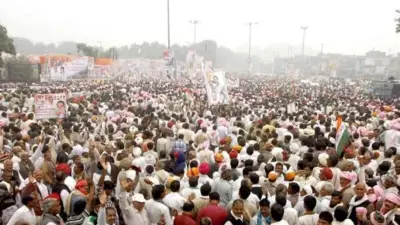
In a move that has sent shockwaves through international security circles, Russian President Vladimir Putin has ordered his top military and government officials to draft concrete proposals for the possible resumption of nuclear weapons testing. This development comes amid escalating tensions between Moscow and Western powers.
Strategic Shift in Nuclear Policy
The Russian leader has directed Foreign Minister Sergei Lavrov and Defence Minister Sergei Shoigu to prepare detailed plans that would put Russia in a position to conduct nuclear tests if such a decision is formally made. This represents a significant escalation in Moscow's nuclear posture and marks a potential turning point in global arms control efforts.
Treaty Withdrawal Considerations
Russia's upper house of parliament, the Federation Council, is simultaneously moving to revoke the country's ratification of the Comprehensive Nuclear-Test-Ban Treaty (CTBT). This landmark international agreement, which Russia originally ratified in 2000, prohibits all nuclear explosions for both military and peaceful purposes.
"The Russian Ministry of Defense and the nuclear-deterrence forces must be ready to conduct a nuclear test if such a decision is made," stated Putin during high-level meetings with security officials.
Global Reaction and Implications
The potential resumption of nuclear testing has drawn immediate concern from international observers and Western governments. The United States, while never formally ratifying the CTBT, has maintained an informal moratorium on nuclear testing since 1992. Russia similarly halted testing in 1990.
- Potential arms race acceleration
- Deterioration of US-Russia relations
- Global non-proliferation efforts at risk
- Increased regional security concerns
Historical Context and Future Projections
This development follows months of heightened nuclear rhetoric from Moscow since its invasion of Ukraine in February 2022. While Russian officials insist this doesn't mean tests will definitely occur, the preparation for such possibilities signals a dangerous new phase in global nuclear diplomacy.
International security experts warn that a resumption of nuclear testing by any major power could trigger a chain reaction, potentially leading other nuclear-armed states to follow suit and effectively ending decades of nuclear test bans.





